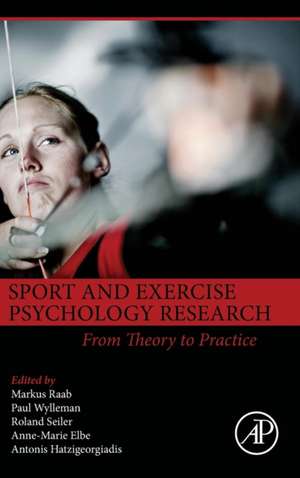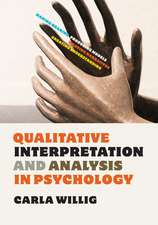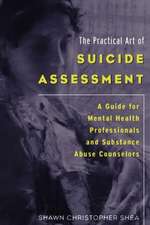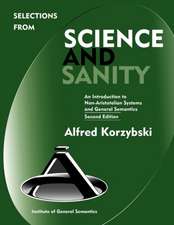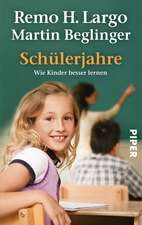Sport and Exercise Psychology Research: From Theory to Practice
Editat de Markus Raab, Paul Wylleman, Roland Seiler, Anne-Marie Elbe, Antonis Hatzigeorgiadisen Limba Engleză Hardback – 14 iun 2016
- Includes international contributions from Europe and the U.S.
- Encompasses theory, research, and applications
- Includes sport psychology and exercise research
- Features applied information for use with coaches, teams, and elite athletes
- Identifies performance enhancers and inhibitors
Preț: 449.89 lei
Preț vechi: 573.57 lei
-22% Nou
Puncte Express: 675
Preț estimativ în valută:
86.09€ • 89.38$ • 71.79£
86.09€ • 89.38$ • 71.79£
Carte tipărită la comandă
Livrare economică 15-29 martie
Preluare comenzi: 021 569.72.76
Specificații
ISBN-13: 9780128036341
ISBN-10: 0128036346
Pagini: 522
Dimensiuni: 152 x 229 x 33 mm
Greutate: 0.93 kg
Editura: ELSEVIER SCIENCE
ISBN-10: 0128036346
Pagini: 522
Dimensiuni: 152 x 229 x 33 mm
Greutate: 0.93 kg
Editura: ELSEVIER SCIENCE
Cuprins
Chapter 1: European Perspective on Sport Psychology
Section I: Prerequisites of Sport and Exercise Psychology
Chapter 2: Importance of Instructions in Sport and Exercise Psychology
Chapter 3: Benefits of Physical Activity and Fitness for Lifelong Cognitive and Motor Development—Brain and Behavior
Chapter 4: Visual Perception and Motor Action: Issues in Current Quiet-Eye Research
Chapter 5: Learning a Motor Action “From Within: Insights Into Perceptual-Cognitive Changes With Mental and Physical Practice
Chapter 6: Perspectives on Team Cognition and Team Sports
Section II: Individual Differences in Sport and Exercise Psychology
Chapter 7: Antecedents of Need Supportive and Controlling Interpersonal Styles From a Self-Determination Theory Perspective: A Review and Implications for Sport Psychology Research
Chapter 8: Why Self-Talk Is Effective? Perspectives on Self-Talk Mechanisms in Sport
Chapter 9: Personality-Trait-Like Individual Differences: Much More Than Noise in the Background for Sport and Exercise Psychology
Chapter 10: Promoting Acculturation Through Sport: An Ethnic-Cultural Identity Approach
Section III: Perspectives From Sport Psychology
Chapter 11: Doing Sport Psychology? Critical Reflections of a Scientist-Practitioner
Chapter 12: Theoretical Developments in Career Transition Research: Contributions of European Sport Psychology
Chapter 13: Holistic Perspective on the Development of Elite Athletes
Chapter 14: Serial Winning Coaches: People, Vision, and Environment
Chapter 15: Sexual Harassment and Abuse in Sport: Implications for Sport Psychologists
Chapter 16: Theory-Based Team Diagnostics and Interventions
Section IV: Perspectives From Exercise Psychology
Chapter 17: Empowering and Disempowering Coaching Climates: Conceptualization, Measurement Considerations, and Intervention Implications
Chapter 18: Escape From Cognitivism: Exercise as Hedonic Experience
Chapter 19: Coach Behaviors and Goal Motives as Predictors of Attainment and Well-Being in Sport
Chapter 20: Health Assets and Active Lifestyles During Preadolescence and Adolescence: Highlights From the HBSC/WHO Health Survey and Implications for Health Promotion
Chapter 21: Emotional Experiences and Interpersonal Relations in Physical Activity as Health Prevention and Treatment—A Psychodynamic Group Approach
Section I: Prerequisites of Sport and Exercise Psychology
Chapter 2: Importance of Instructions in Sport and Exercise Psychology
Chapter 3: Benefits of Physical Activity and Fitness for Lifelong Cognitive and Motor Development—Brain and Behavior
Chapter 4: Visual Perception and Motor Action: Issues in Current Quiet-Eye Research
Chapter 5: Learning a Motor Action “From Within: Insights Into Perceptual-Cognitive Changes With Mental and Physical Practice
Chapter 6: Perspectives on Team Cognition and Team Sports
Section II: Individual Differences in Sport and Exercise Psychology
Chapter 7: Antecedents of Need Supportive and Controlling Interpersonal Styles From a Self-Determination Theory Perspective: A Review and Implications for Sport Psychology Research
Chapter 8: Why Self-Talk Is Effective? Perspectives on Self-Talk Mechanisms in Sport
Chapter 9: Personality-Trait-Like Individual Differences: Much More Than Noise in the Background for Sport and Exercise Psychology
Chapter 10: Promoting Acculturation Through Sport: An Ethnic-Cultural Identity Approach
Section III: Perspectives From Sport Psychology
Chapter 11: Doing Sport Psychology? Critical Reflections of a Scientist-Practitioner
Chapter 12: Theoretical Developments in Career Transition Research: Contributions of European Sport Psychology
Chapter 13: Holistic Perspective on the Development of Elite Athletes
Chapter 14: Serial Winning Coaches: People, Vision, and Environment
Chapter 15: Sexual Harassment and Abuse in Sport: Implications for Sport Psychologists
Chapter 16: Theory-Based Team Diagnostics and Interventions
Section IV: Perspectives From Exercise Psychology
Chapter 17: Empowering and Disempowering Coaching Climates: Conceptualization, Measurement Considerations, and Intervention Implications
Chapter 18: Escape From Cognitivism: Exercise as Hedonic Experience
Chapter 19: Coach Behaviors and Goal Motives as Predictors of Attainment and Well-Being in Sport
Chapter 20: Health Assets and Active Lifestyles During Preadolescence and Adolescence: Highlights From the HBSC/WHO Health Survey and Implications for Health Promotion
Chapter 21: Emotional Experiences and Interpersonal Relations in Physical Activity as Health Prevention and Treatment—A Psychodynamic Group Approach
